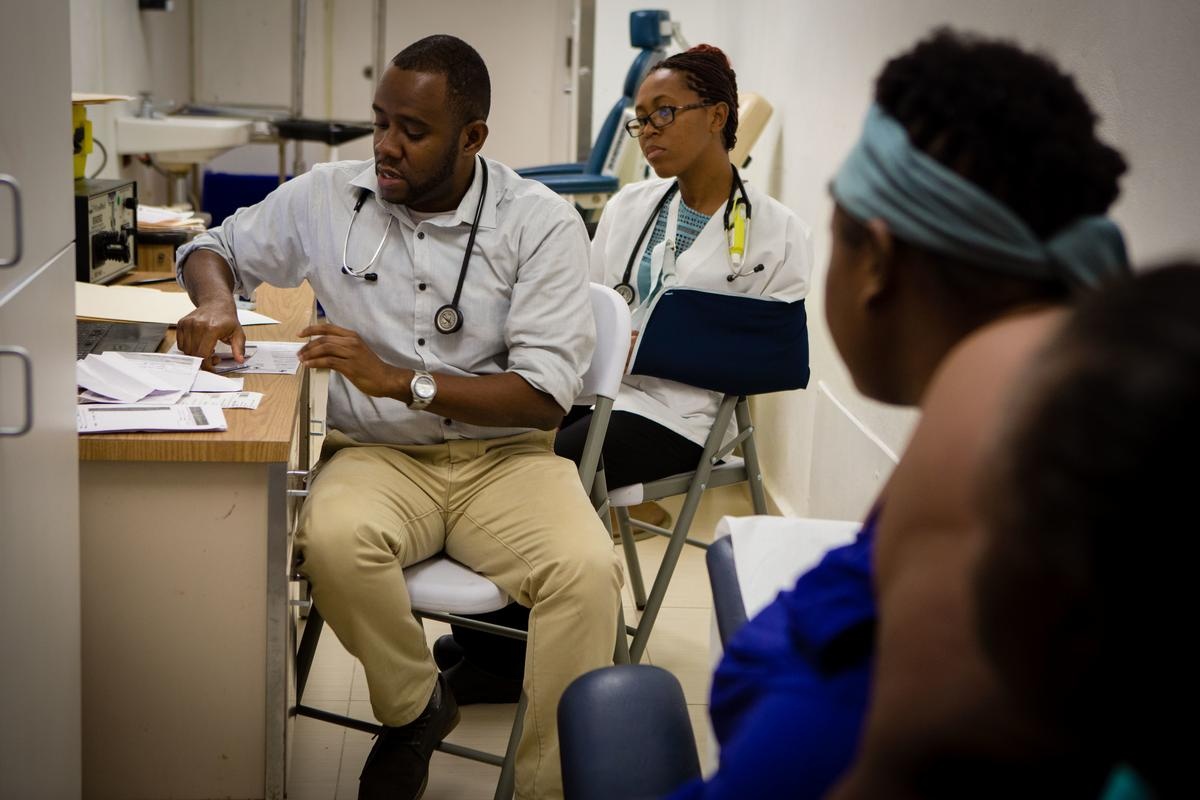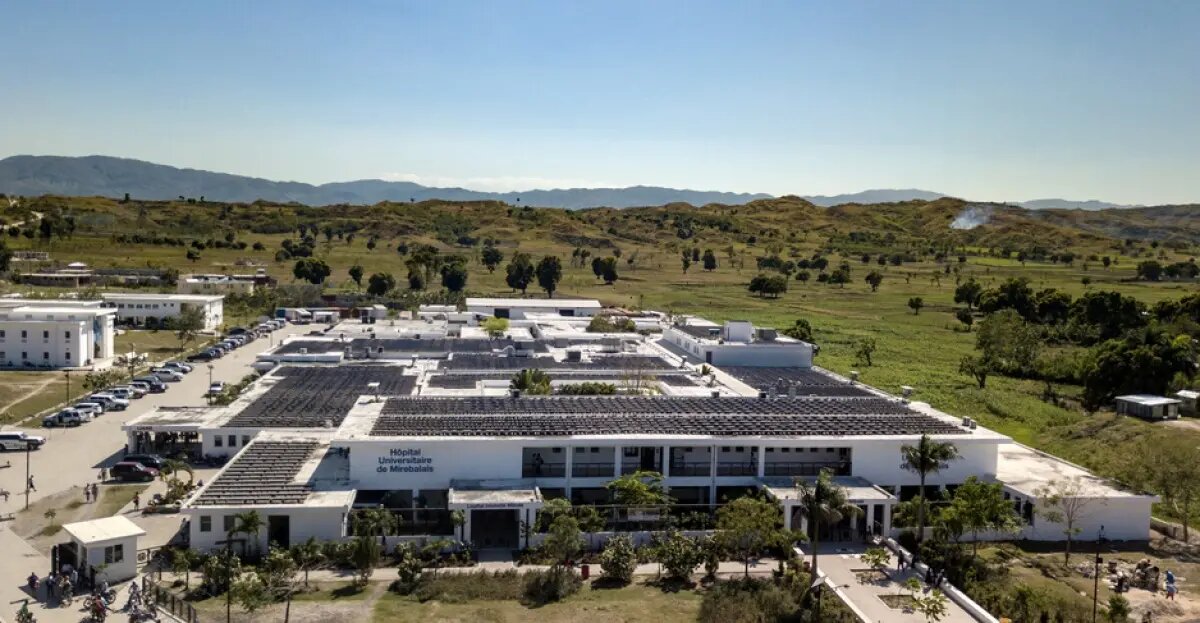Research: Graduate Medical Education Bolsters Health Care Delivery in Haiti
Teaching hospital is a culmination of three decades of PIH’s work in Haiti
Posted on Mar 10, 2023

After the devastating 2010 earthquake struck Haiti, health systems were fragile. Hospitals were destroyed. Clinicians lost their lives. And resources were limited.
Then, more than ever, spaces and systems needed to be revitalized to address the immediate and long-term health needs of Haitians. That’s when Hôpital Universitaire de Mirebalais and graduate medical education became a top priority for Zanmi Lasante, as Partners In Health (PIH) is known locally, and the Haitian Ministry of Health. On March 14, 2013, the hospital opened its doors to patients, providing services to more than 185,000 people in the region.
Since then, the hospital and its staff have achieved a long-list of accomplishments, contributing to a much-needed sustainable health system for local communities.
“Public-private partnerships lead to big change in low- and middle-income countries, such as Haiti,” says Dr. Sterman Toussaint, former director of graduate medical education at Hôpital Universitaire de Mirebalais. “This partnership model after the earthquake, in just a decade, has brought so much in terms of access to quality and diversity in health care and medical education.”
A research paper, published in Academic Medicine and co-authored by Toussaint, who is currently PIH Liberia's director of clinical services and director of medical education, highlights those achievements, challenges, and lessons learned while bolstering graduate medical education and transforming the health system in Haiti after the 2010 earthquake.
Internationally Recognized, Haitian-Led Institution
The vision for Hôpital Universitaire de Mirebalais was always to meet international standards. And in 2020, it officially did when it became the first such facility in the Caribbean, and the first in a low-income country to receive institutional accreditation from an international oversight group. This prestigious milestone indicates that the hospital meets the highest standards for graduate medical education in the world.
“The accreditation highlights a decade of commitment from the leadership team in Haiti to making sure that the standards were put forward and upheld. Those standards are the north star in a lot of ways for the level of quality and commitment the institution strives for,” says Co-author Dr. Michelle Morse, assistant professor at Harvard Medical School and former deputy chief medical officer at PIH, and now chief medical officer for the New York City Health Department.
Like the students, those leading the residency program are all Haitian.
“The program was built by Haitians, led by Haitians, and graduates Haitians,” says Morse.
This significant achievement and model has helped carry Haiti beyond acute relief and toward a more reliable health system. Since 2012, the medical education program has trained 194 clinicians across 11 specialties and subspecialties, including surgery, pediatrics, and emergency medicine. Most graduates (77%) have stayed to work at clinics and hospitals in rural Haiti. And 75% of training programs are now led by alumni, according to Dr. Ornella Sainterant, Zanmi Lasante's director of medical education.
Additionally, all graduates have completed a required social medicine seminar and been evaluated monthly during their mandatory clinical rotation, as social medicine is considered one of the seven core competencies in resident training at HUM. This is a big deal, says Morse, who notes such a requirement doesn’t yet exist in many countries, including the United States. Social medicine brings a social science lens to training to help clinicians understand the full picture of disease, beyond medical symptoms. This includes factors such as education, economic status, nutrition, and structural forces driving poor health. Social medicine training is especially important for those caring for marginalized populations, the authors note in their paper.
"Our hope for quality health care for all can only be realized through quality training of the future generaion of empathetic, committed, and highly qualified health care professionals," Sainterant says. "Over the past 10 years, we have proven that investing in high-quality of medical education following the ideology of social justice and equity in health care is successful."

Looking Ahead
As the graduate medical education program continues to expand, leaders are working to strengthen the program through various strategies. Building on the institution’s accreditation, one of the next steps is to earn accreditation for individual specialties, explains Co-author Dr. Mary Clisbee, director of research and administrator for graduate medical education at Hôpital Universitaire de Mirebalais.
Another goal is to maintain retention of graduates in Haiti, especially in the public sector. Though there is a critical need for doctors, nurses, and midwives in Haiti, there are sometimes not enough available roles in the public sector, which drives clinicians to seek work outside of the country or in the private or nongovernmental sectors. Creating additional positions, based on projected population needs, will help create a sustainable work force and health care access for Haitians.
“We remain inspired and feel assured that the sustained commitment and solidarity demonstrated by all stakeholders will continue to flourish and transform health care in Haiti,” the authors wrote in their published paper.

